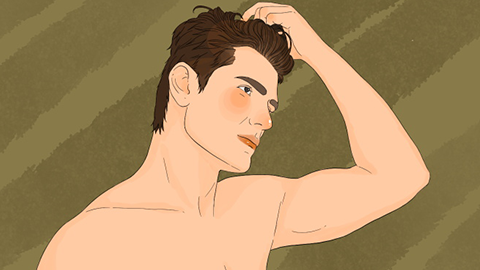What Causes Men to Lose Their Eyebrows?
Generally, male eyebrow loss may be related to natural aging, physical friction, hypothyroidism, alopecia areata, seborrheic dermatitis, and other factors. It is recommended to seek timely medical attention to identify the underlying cause and receive appropriate treatment under the guidance of a professional physician. Detailed analysis is as follows:

1. Natural Aging
With age, the body's metabolism slows down and the hair growth cycle changes. As a type of body hair, eyebrows may grow more slowly or even fall out. It is recommended to maintain healthy lifestyle habits to help reduce eyebrow loss.
2. Physical Friction
Frequent eye rubbing, using harsh facial cleansers, or wearing tight eyeglass frames may cause physical damage to the eyebrows, leading to hair loss. It is recommended to choose gentle facial cleansers, avoid vigorous eye rubbing, and adjust the tightness of eyeglass frames to reduce friction on the eyebrows.
3. Hypothyroidism
Hypothyroidism is usually caused by autoimmune diseases, thyroid surgery, or other factors. Insufficient secretion of thyroid hormones affects the whole body's metabolism, leading to impaired follicular function and eyebrow loss. Symptoms generally include weight gain, fatigue, and dry skin. Treatment usually follows medical advice to use medications such as methimazole tablets, levothyroxine sodium tablets, and propranolol hydrochloride tablets.
4. Alopecia Areata
Alopecia areata is an autoimmune disease in which the immune system mistakenly attacks hair follicles, causing damage and preventing normal hair growth. It is often accompanied by symptoms such as hair loss and round or oval patches of hair loss on the scalp or other body areas. Treatment may follow medical advice to use medications such as betamethasone dipropionate cream, minoxidil topical solution, and Tianma Shouwu tablets.
5. Seborrheic Dermatitis
Seborrheic dermatitis is usually caused by microbial infections and other factors. Overactive sebaceous glands lead to excessive oil production on the scalp and eyebrow areas, causing inflammatory reactions that interfere with normal hair growth. Symptoms may also include itchy, oily scalp and rashes. It is recommended to use medications such as ketoconazole shampoo, roxithromycin granules, and selenium sulfide shampoo under medical guidance.
In daily life, maintaining a healthy lifestyle with regular sleep patterns and a balanced diet, and avoiding overly irritating cosmetics or hair care products, can help reduce follicular irritation.




